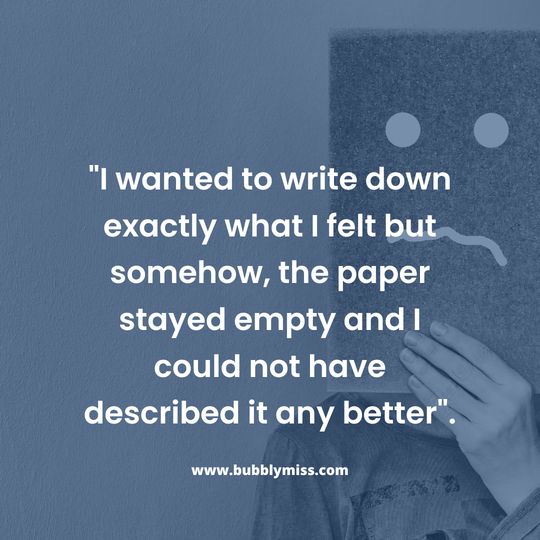How To Deal With a Depressed Spouse

Many people struggle with depression at one point or another. Some can manage it on their own, but many cannot. If your partner struggles with depression, it can be one of the most challenging things for you to deal with – especially because you have no control over another individual or how they react to treatment. Living with a partner who struggles with depression can make you feel very helpless, and the question is, how can you cope, finding yourself in a situation like this, and how can you support your partner? Let’s look at the definition of depression, its causes, and how you can best support the person you love through this often daunting experience.
What is depression?
Depression is an illness. It affects people in different ways, but generally causes tremendous sadness, feelings of low self-esteem, loss of energy, and often results in your partner withdrawing from friends and family members. In the worst case, it can even cause a person to have suicidal thoughts.
Depression is very different from your typical negative or frustrated mood. Feeling sad or angry are normal feelings, which all of us experience from time to time, and these feelings usually go away after a while. We can deal with such feelings as we let them out, either by crying or doing some intense sports, or talking to someone we trust. But to suffer from depression is a completely different situation. Crying and ‘letting it all out’, or talking about it does not cure depression. Some people who are depressed keep getting sadder and sadder, even without an apparent reason. Depression will eventually also affect someone’s ability to work effectively at their job, or may even make it impossible to work at all.

Potential Causes of Your Spouse’s Depression
There are many reasons that people experience depressive episodes. The following list reflects just a few of the possible causes.
Genetics – depression may run in the family
Brain chemistry – some brain chemicals called neurotransmitters – control our mood and can cause depression. If a brain’s chemical imbalance has been there since birth, it could cause depression later. Whether this is the root of your spouse’s depression can only be examined by a doctor, as well as by consulting a psychotherapist.
Relationship problems (one of the most probable causes of depression!)
Depression most often results from relationship problems. The average depressed spouse has a history of many failed romances and experienced domestic violence, neglect, or abuse at least once. Each relationship failure brings with it the pain of not finding the right partner, the anguish of rejection, and the sense that you cannot trust your partner.
It is often not that easy to recognize that you are married to someone who is depressed – your partner may be able to hide it well and pretend to be fine most of the time. Depression does not necessarily cause immediate noticeable symptoms, and may not even be recognized by the person affected. It may take many years and multiple failures for a person who suffers from depression to even realize the problem himself, let alone come to terms with it.
Usually, depression arises from a lack of emotional needs, which can go way back to a childhood trauma or neglect. If you feel like your partner is withdrawing himself and does not talk or seem to trust you anymore, there may be a problem. Trust is associated with our basic need for security, and maybe your partner did not grow up in a surrounding of trust. Traumatic childhood experiences can cause emotional imbalance and will result in the inability to create lasting social and emotional connections, again leading to more and more isolation.
Infidelity
Infidelity in marriage seems to be one a common causes of depression. The cheated spouse feels betrayed because their trust was violated in the worst way. The relationship as they had known it comes to an abrupt end; all their ideals of a happy relationship are swept away in an instant. What can be more devastating and depressing than to find out that your beloved partner has cheated on you?
But also the one who did the cheating can fall into depression. Their cheating will likely always be on their mind, and they must constantly worry about what will happen should their partner find out. The uncertainty that comes with infidelity can be terrifying – especially if the one who cheats still somehow cares about his spouse.
Once you have cheated, no matter how hard you try to make up excuses, your partner won’t believe you anymore, because the trust that you both have had in each other has been shattered. And trust is so important, because it links us with our essential emotional need for a sense of security – which is the basis for any functioning and happy relationship.
Financial problems
Potential or current financial problems are a big issue – and worry – for many married couples, and often enough reason for a divorce. Financial problems can develop due to outer circumstances, but also from a partner’s lack of understanding how to budget their finances, or false expectations in regards to financial success. Financial struggles over time can lead to deep frustration, anger, helplessness, and eventually turn into a depression. Also, each partner may have different expectations in regards to financial spending, and if these are not communicated and agreed on, there is bound to be trouble.
Menopause
Although there is no evidence of any cause-and-effect relationship, some women do report a worsening of depressive symptoms during menopause.
What is Postmenopausal Depression?
Postmenopausal Depression, also known as ‘mood changes’, is a neurological disorder that occurs in women after menstruation, and it affects their bodies, brains, and behavior. The main symptoms are depression, anxiety, irritability, insomnia or excessive sleeping habits, and can go on from one month to several years. Many factors can trigger postmenopausal mood changes, like hormonal problems, physical conditions, or relationship problems.
Many women experiencing postmenopausal depression testify that sudden shifts in their levels of hormones often lead to feelings of depression.
Health problems
Health problems can cause depression and thus affect your relationship. Health problems, may they be of physical nature or due to mental health issues, are challenging for anyone to manage and will put strain on your relationship. Ongoing health problems can possibly result in depression. Any health problem that affects a your or your partner’s ability to function at home or work requires a doctor’s attention.
Burnout
Burnout is a state of emotional, physical, and mental exhaustion caused by excessive and prolonged stress. It occurs when you feel overwhelmed and is usually related to prolonged stress at your job. Burnout is a common cause of depression. Some causes of burnout include:
There is no scientific evidence that financial problems cause a burnout. Still, there is evidence that significant economic strain on couples can lead to a burnout in one spouse, especially if they have a high need for achievement and power.
Unfair treatment
You or your partner can experience a burnout from unfair treatment by others, especially at work, or when experiencing ongoing social injustice. Sometimes this kind of depression is temporary and situational, but it can also be long-lasting.
Culture also plays a role in regards to experiencing depression in marriage or relationships. In several Asian cultures, marriage is very important, but without undermining the individual’s identity. The expectations of these cultures are based on the belief that a good marriage is crucial for a happy life. In contrast to this culture, Western cultures believe more in the priority of individualism. They think that couples should, first of all, remain individuals and keep their own identities and lifestyles, thus making marriage less critical in regards to achieving happiness.
Divorce rates are very high when one spouse suffers from a real depression. A person with depression can be very difficult to live with, because they may have recurring episodes of feeling profoundly sad, hopeless and helpless, exhausted, and are increasingly unable to cope with daily life.

Symptoms of Depression
– diminished interest in pleasurable activities; a decrease in the ability to feel joy (Anhedonia)
– difficulties concentrating
– procrastination and loss of motivation
– feelings of sadness, tearfulness
– feelings of guilt and shame
– a change in appetite, where one may gain or lose weight
– sleeping disorders (sleeping too little or too much)
– tiredness and feelings of exhaustion (even after only doing little tasks)
– a tendency toward anxiety or agitation
– outbursts of anger
– feeling like they are suffocating
– cognitive difficulties, like being unable concentrate or pay attention
– feelings of worthlessness
– loss of interest in former activities
Again, a common misperception is that depression and sadness are the same things, but it is essential to understand and acknowledge the difference. Most people may experience some sadness from time to time, whether it is due to grief, an unfortunate event in their life, or just feeling blue – but normal sadness usually does not last very long. Depression is an illness and must be taken seriously.
How to Help a Depressed Spouse?
You cannot cure a person of depression, but you can be there for them. Here are some ways to support your partner when dealing with depression:
Be patient and understanding, be a good listener and take their depression seriously.
Learn to accept that you may not be able to really understand your spouse and are unable to relate to how they feel.
You must prove yourself as trustworthy, so that they continue to feel ‘safe’ around you (also known as “reverse-proofing”). You may need to counteract some of your behaviors that may upset your depressed spouse and try to create a peaceful environment.
Learn about depression for your own understanding, and so that you can relate better to your partner’s struggles. You can find out more about depression by reading articles on it and by consulting a professional on the topic.
As for your partner, it is important to understand that you cannot ‘save him’, and that he may need professional help in order to work through his illness.
Be considerate of your spouse’s feelings and their inability to cope with reality. If a particular situation brings on depression, avoid or minimize the option for your partner to get into such a situation.
Try not to over-react or respond in an immature way, if you have any negative feelings about a particular thing – this will just make things worse for your spouse.
Continue to lovingly encourage your spouse to seek treatment, even if he first refuses or resists. There has been an improvement in medications and other treatments for depression. Also, therapy can be a big help in encouraging necessary lifestyle changes and reducing stress.
Together you could try to come up with things that you can do to show your love and support for each other, e.g., cuddle up on the sofa at night while you watch a favorite movie, or go out once a week, just the two of you.
Try to get support from family and friends, especially those your partner looks up to; best would be to find a trusted adult who has already gone through depression.
Offer your spouse to help identify what could be making them feel depressed, but if he refuses, accept this and don’t push him.
If you feel at all uncomfortable or threatened by your spouse’s behavior when he is depressed, then look for ways to deal with it before it gets out of hand.
Don’t give up on your partner! Just try to keep on doing what you are doing best and just be there for him. Even if it doesn’t seem to be working ,or feels like there is no way out of the problem, it is good to keep on trying – because the fact is, you are in this together, and if you care about your partner, you cannot just sit back and watch him suffer.

Know the warning signs of suicide
Realize that depression can lead to suicide, and it is essential to know the warning signs, so that you can pay attention to them…
First, listen to your partner possibly talking about suicide or wanting to give up.
Second, pay attention to how your spouse acts – whether he seem listless and has lost interest in all the things he once loved and was excited about.
Other warning signs of suicide include:
– increasing use of alcohol or drugs
– an unusual interest in guns or other weapons
– alterations in your spouse’s appearance, such as becoming immaculately dressed and groomed when they usually are sloppy about their appearance – or vice versa
– excessive involvement in “risky” behaviors like gambling, reckless driving, etc.
– preoccupation with the topic of death
– use of the words relating to suicide. Dramatically proclaiming things like “Goodbye,” “See you later,” or “It’s not worth it” could be a tip-off that your spouse is trying to get you used to the idea that he is contemplating suicide.
What to do when your spouse or partner is depressed?
If your partner suffers from depression, the most important thing is for him to know that he is not alone. Take him in your arms several times a day and assure him again and again that you are with him. If your partner is willing to, you can try to discuss his problems and explore the options together. Also, a person suffering from depression might need long-term medication, so encourage him to seek professional help – there are many different kinds of treatment available nowadays.
One helpful way to support your spouse at home could be for both of you to start practicing a form of meditation called Mindful Meditation. It has been proven that this practice positively changes brain function, and it shows great promise as a treatment for depression. If the both of you do it together, your partner may also feel more comfortable meditating.
One needs to remember that in treating depression, it can take time for the proper treatment to to be found and for it to start having an effect. And what may have worked at one point in time, may not work down the road. Treating depression is an ongoing and tedious process.
What not to say to your depressed spouse?
“It is about time you got better…”
“You should look at the bright side of things.”
“Self-pity is not going to help.”
“You have to come out of this depression.”
“Everything will be all right again soon.”
“At the very least, you could do this or that…”
“I am sick and tired of you complaining.”
“It’s all in your head. Face reality.”
“You have everything you could ever want. Why are you still so sad?”
“You’re always so negative.”
“Didn’t you say you’d go to the doctor? Why haven’t you done that?”
“I know how you are feeling.”
“You should be grateful for…”
“This can’t possibly be that tragic!”
“If you had done what I told you to do, then we wouldn’t have this situation now.”
In using any of these statements you would make your partner feel like you are not taking him or his depression seriously, and there is nothing worse than that.
Final Thoughts
When you have a depressed spouse, it is essential to remember that you cannot ‘fix’ or ‘save’ him. You can only try to support him and help him cope with his illness, as much as he will allow you to. Most importantly, just be there for him and let him know that he is not alone!






